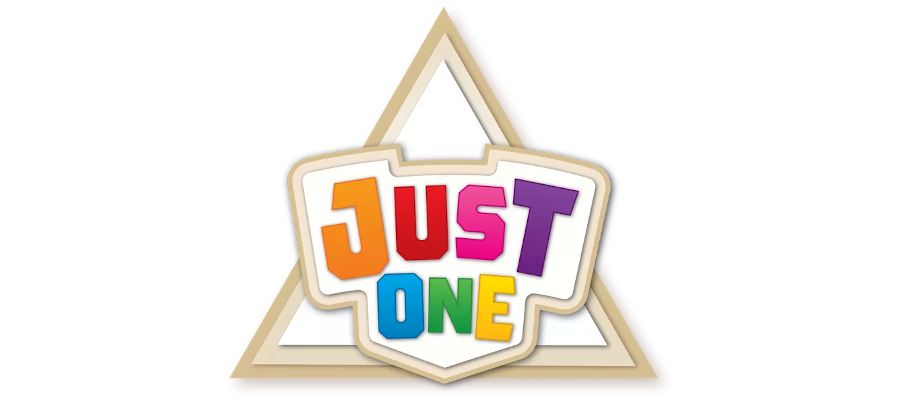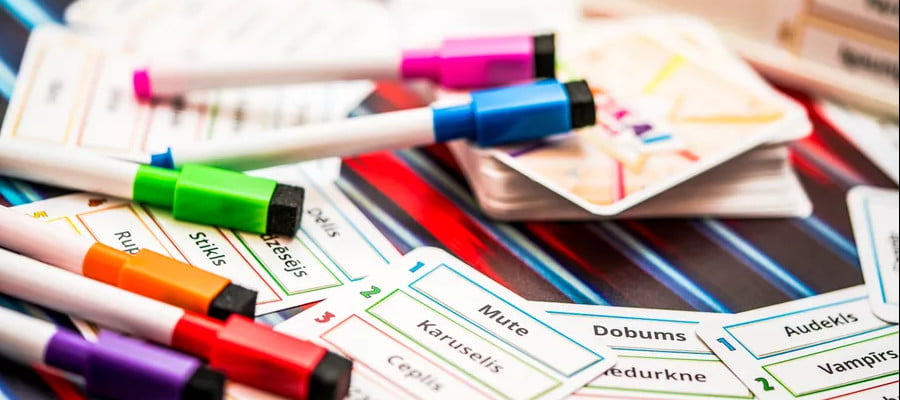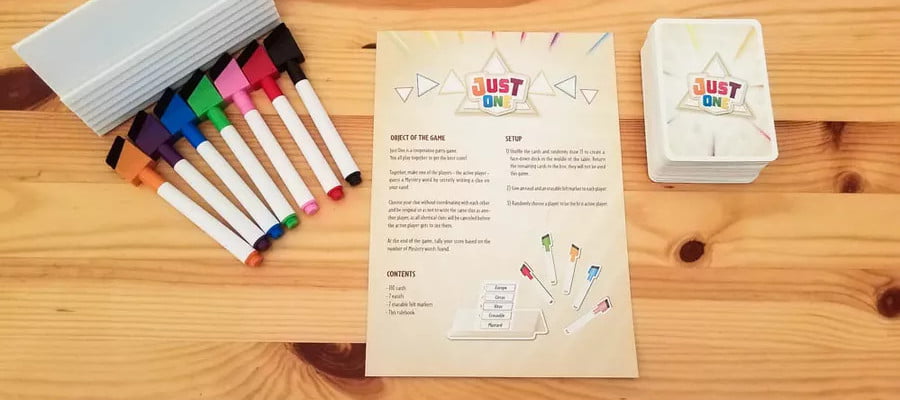Chances are if you’re like me, you’re going to be dealing with some family gatherings, and those gatherings are almost certainly going to feature downtime where people are looking for something to do. And again, if you’re like me you might be thinking well this is the time to bust out a board game or a card game and you have to resist that urge. You have to resist the urge because this is not the time to teach someone how to play Resistance with its tension and its lying and its complicated steps. Right now, you need a party game, and you need a party game so good that it’ll work for almost any grouping that are capable of engaging with the idea of playing a game together. I don’t have a lot of party games in my collection, and I know what my collection would look like if I was limiting myself to …

This party game is one of the easiest games to get playing out of any I’ve ever played. It’s a game that lives alongside other party beasts like Codenames, Werewolf and even the basically-free A Fake Artist Goes To New York.

The game Just One is played with a very small amount of stuff. Each player has a marker and a little dry-erase writeable easel, and there’s a deck of cards. For any given game, you only need a small number of cards. First player grabs a card, puts it facing the rest of the players, and picks a number from 1-5. That tells them the word they want that player to guess. Then, those players write a one-word clue on their easels, and then before showing it to the player who’s guessing, they show one another.
If any two players’ clue matches, those two players don’t show their clues, and the guesser gets to see the remaining clues. They get to guess once, what word the remaining clues are trying to show them.
That’s it.
That’s a round.
And you may think ‘hey, that doesn’t sound like much,’ and it’s not much. It really isn’t! It’s simple and you can breeze through a round so fast that a failure or a mistake doesn’t sting or last because you got a new word to go for now. You can go from having never played this game to playing your second round in about five minutes. There’s no elaborate setup, no fictional buy-in, there’s almost nothing in the way of ‘hey, let’s play a game’ to the lets-playing-a-game.
Just One has no fiction; it has no soul, no heart, no myth to it, there’s no lore, no backstory or association. When we’re talking about games there’s a common refrain of how mechanics create a narrative and how that narrative creates a fiction and all that good stuff that gives you room to tell stories and make movies and engage the mind and soul and imagination in a way that lasts beyond the game and the playing. A game like Just One is almost the opposite of that; playing Just One is often more an exercise in finding unrelated threads of things that you and the guesser can connect to and trying to pull those threads in against one another, as you navigate the space of other clue-givers, where nobody wants to take the most obvious option but nobody wants to leave the most obvious clues to lay by the wayside.
There’s a willingness to refer to these systemic games as being ‘pure,’ and you know, I’ve done it, I’m not proud. Or tired. For me what’s important about Just One isn’t just its systemic purity (and trust me, a lot of other games like it exist and have been iterated on, often by the same developers in the same general play factor, almost like when you have the infrastructure for dry-erase markers and hard plastic you wind up doing a lot with it).

The way I want to recommend Just One though isn’t its purity or some dazzling systemic mastery, but instead, I want you to think of this as one of the most convenient games of its type that you can play. You don’t even need to be able to shuffle cards to play this. Grab a hunk of thirteen out of the heart of the deck and it is close enough to shuffled as makes no difference. Setup is handing people a marker and a placard and telling them what to do the first time, and then, they get it.
This game thrives on exploiting your competitive spirit (‘I bet I can do a better clue than that’) and your cooperative nature (‘oh I hope this works for them’). It makes your in-group messages into game-winning hail maries, and it punishes two people for sharing a braincell in a way that is frictionless and over in moments.
This game is amazing.
I don’t own it.
(Yet)
I don’t own it because I am writing this on Christmas Day 2022. I played this game again today, with my family, and had this moment of asking: WHY THE HELL DON’T I OWN A COPY OF THIS GAME? It’s cheap (as a widespread award winner), it’s available (on physical and digital stores), it’s even something you could print-and-play at a pub or family gathering with a phone and a note app (I mean how hard is it to find a random word generator website online). I want to show this game to students and I want to share this game with my dad.
The way I feel when I play this game and I see my weirdo clues click with the guesser is amazing. When I am presented with five words and I can stare at them until the pieces slot together in my head and suddenly I blurt out a word like ‘gothic’? That’s amazing.
But.
But but but but.
But.
Wanna know the best feeling?
The best feeling is when you get presented with missing clues. Five clues in front of me, three face-down because they match. So two clues, but suddenly you’re presented with the question: Hey, what’s something so obvious that three people tried for it? Is that a clue? What kind of clue would these three people have in common? What would they pick when trying to talk to me…?
“Chewbacca.”
Success.
Cheers.
Shock.
And the elation.
If you want a small, convenient board game collection of the best and brightest in each category, sort of paragons of excellence so you don’t feel overwhelmed with choices, Just One is a game that can stand, on its own, as your only party game and totally justify that space.